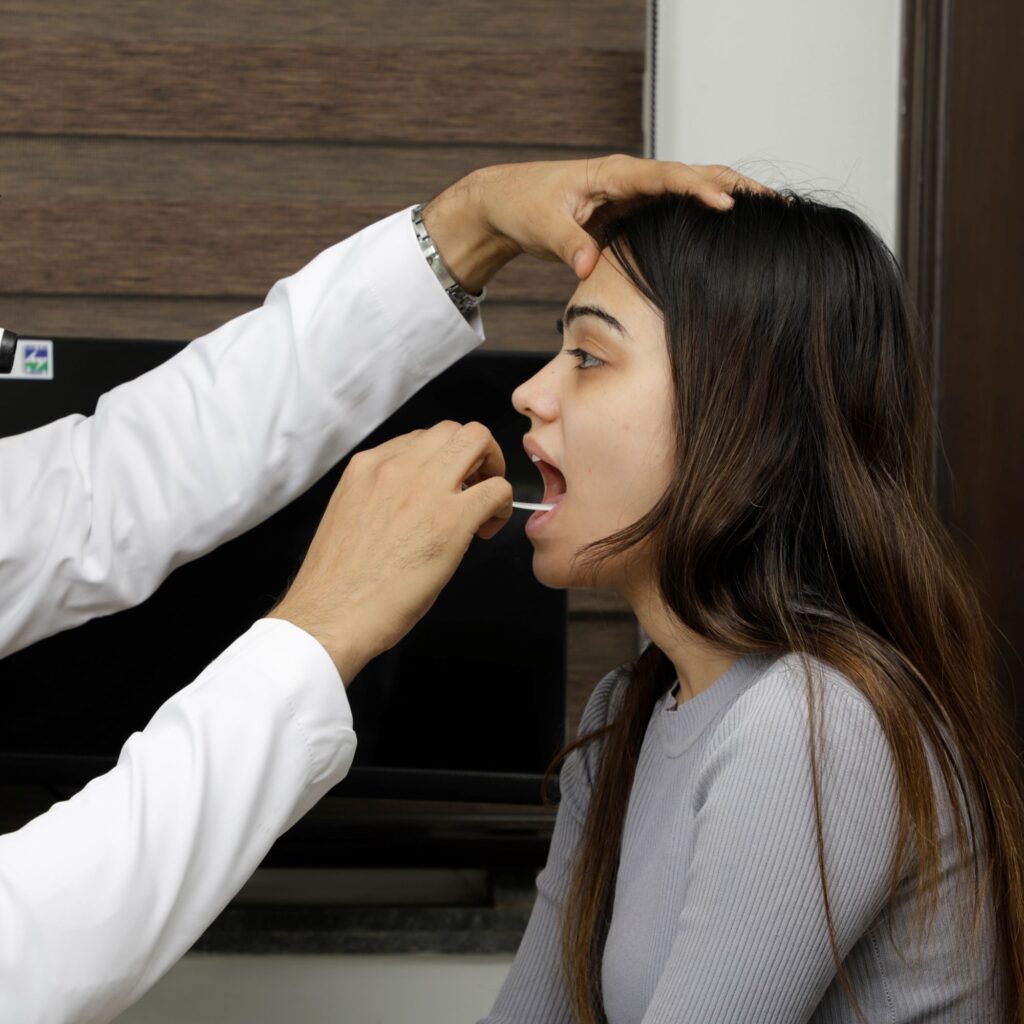Mouth Cancer
Mouth Cancer
Mouth cancer, also known as oral cancer, is a type of cancer that affects the lips, tongue, gums, floor of the mouth, and other parts of the mouth. The causes of mouth cancer are not fully understood, but there are several factors that may increase a person’s risk, including tobacco use, excessive alcohol consumption, exposure to the human papillomavirus (HPV), a history of head and neck cancer, and a poor diet lacking in fruits and vegetables.


Symtomps
- Persistent sore or lump in the mouth that doesn’t heal.
- White or red patches inside the mouth.
- Persistent sore throat.
- Difficulty swallowing.
- Change in voice.
Treatment
- Diagnosis Methods
– Physical exam, Biopsy, Imaging tests (X-rays, CT scans, MRI scans) - Biopsy Importance
– Determines if growth is cancerous
– Identifies the type of cancer - Treatment Options
– Surgery: Common for removing cancerous tissue
– Radiation therapy: Uses high-energy rays to kill cancer cells
– Chemotherapy: Involves drugs to kill cancer cells - Treatment Factors
– Depends on cancer stage and location
– Considers overall patient health - Surgery Details
– Involves removing cancerous and surrounding tissue
– Reconstruction
– Type depends on cancer size, location, and patient health

Expectation
- Disease Control
- Pain Management
- Functional Restoration
- Prevention of Spread
- Improved Quality of Life
Downtime
After mouth cancer surgery, patients may experience pain and discomfort. There may be temporary or permanent changes to your diet following mouth cancer surgery. Regular follow-up appointments with your healthcare team will be essential to monitor your recovery, address any complications, and discuss further treatment or rehabilitation needs.

